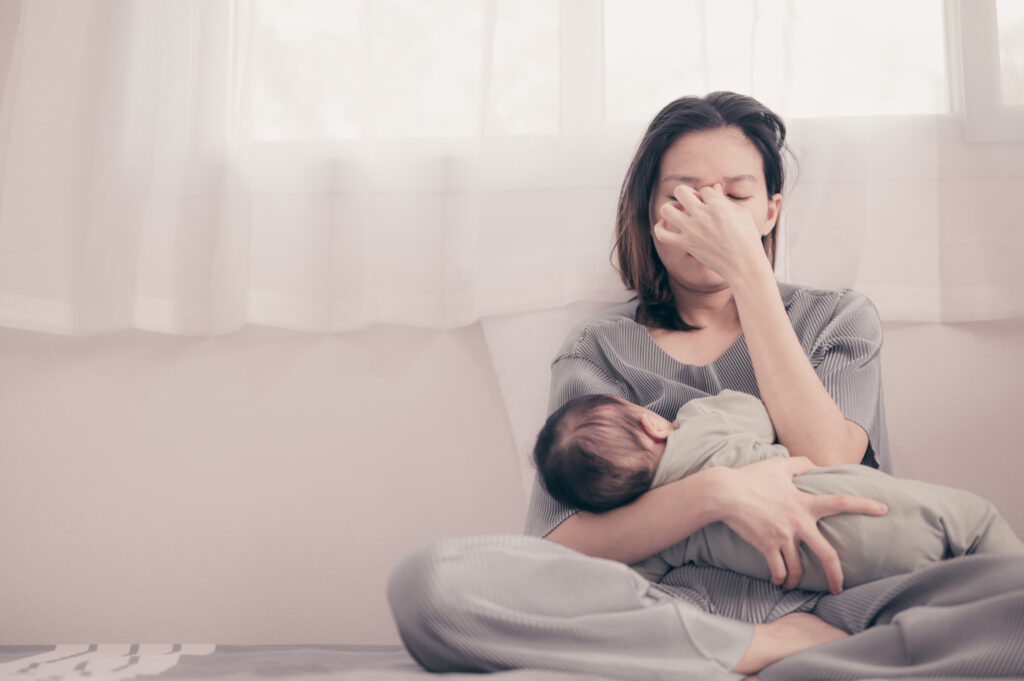Understanding and Recognizing the Signs of Post Partum Depression
Bringing a new life into the world is often seen as a joyous milestone. However, for many women, the postpartum period can bring unexpected emotional challenges. Among these is post partum depression—a serious mental health condition that affects both new mothers and their families. It’s more than just the “baby blues.” It’s a deeper, persistent sadness that can interfere with daily life, bonding with the baby, and self-care.
Recognizing the early signs of Post Partum Depression is essential for getting timely support and avoiding long-term mental health consequences. This article explores the most common symptoms, what makes post partum depression different from short-term baby blues, and how new mothers and their families can seek help.
What Is Post Partum Depression?
Post partum depression (PPD) is a form of clinical depression that typically develops within the first few weeks after childbirth, though it can appear any time within the first year. It affects approximately 1 in 7 women and can be triggered by a combination of hormonal changes, emotional stress, and environmental factors.
Unlike baby blues—which affect up to 80% of mothers and last for just a few days—PPD symptoms persist and worsen over time if left untreated. Understanding what sets PPD apart is the first step toward seeking the right postpartum mental health care.
Common Symptoms of Post Partum Depression
Mothers experiencing PPD may notice a wide range of emotional, cognitive, and physical symptoms. While no two experiences are the same, common signs of post partum depression include:
- Persistent feelings of sadness or hopelessness
- Irritability or anger without obvious cause
- Loss of interest in activities once enjoyed
- Changes in appetite or sleep patterns
- Difficulty bonding with the baby
- Feeling overwhelmed or unable to cope
- Excessive crying or emotional numbness
- Thoughts of harming oneself or the baby
These symptoms may be accompanied by physical fatigue and anxiety, making it hard for mothers to perform even routine tasks like feeding, changing, or playing with the baby.
Risk Factors That May Lead to Post Partum Depression
Not every mother will experience PPD, but several factors can increase the risk:
- History of depression or anxiety disorders
- Traumatic childbirth experiences
- Lack of emotional or practical support
- Financial stress or housing instability
- Complications during pregnancy or delivery
- Hormonal imbalance or thyroid issues
- Sleep deprivation over long periods
Recognizing these contributing factors can make it easier to identify post partum depression symptoms early and take preventive measures.
Emotional Impact on Mothers and Families
PPD doesn’t just affect the individual—it can disrupt the entire family dynamic. Mothers may feel disconnected from their babies, leading to developmental delays in infants due to lack of bonding. Partners may feel helpless, frustrated, or shut out, often not knowing how to provide meaningful support.
Children of mothers with untreated PPD are also at higher risk of emotional and behavioral challenges as they grow. Therefore, treating postpartum depression isn’t just about maternal mental health—it’s about family wellness.
Seeking Help: Why Early Intervention Matters
Timely intervention can make a significant difference. Many mothers delay seeking help due to stigma, shame, or misunderstanding their symptoms. However, untreated PPD can persist for months or even years, escalating into chronic depression or anxiety disorders.
If you or a loved one is experiencing symptoms of post partum depression, it’s crucial to speak with a qualified healthcare provider. Treatment options include:
- Therapy: Cognitive behavioral therapy (CBT), interpersonal therapy (IPT), or support groups are effective for many.
- Medication: Antidepressants may be prescribed, particularly for moderate to severe symptoms.
- Lifestyle support: Nutrition, exercise, and sleep hygiene can all contribute to recovery.
Additionally, online therapy for postnatal depression and telehealth options provide convenient access for new mothers who may struggle to leave home for in-person sessions.
Ways Partners and Families Can Support a Mother with PPD
Support from loved ones plays a pivotal role in recovery. Here are some ways partners, friends, and family members can help:
- Offer practical assistance with housework, meals, or baby care
- Encourage the mother to rest and take breaks without guilt
- Validate her feelings instead of minimizing them
- Attend doctor appointments or therapy sessions together
- Check in regularly and express care and concern
Being non-judgmental and present can provide emotional safety and reduce the burden of isolation.
FAQs About Post Partum Depression
Q: How soon after childbirth can post partum depression appear?
A: Symptoms can start as early as a few days after birth, but PPD can also develop weeks or even months later. It’s important to monitor emotional health well into the first year postpartum.
Q: Can post partum depression affect fathers or partners?
A: Yes. While less common, partners can also experience postnatal depression, especially when their partner is struggling. Shared responsibilities and emotional tolls can contribute.
Q: How long does post partum depression last?
A: With proper treatment, many women recover within 6 months. However, untreated PPD can linger and evolve into chronic depression.
Q: Are there natural remedies or coping strategies that can help?
A: While therapy and medication are most effective, supportive practices like mindfulness, journaling, balanced diet, and light exercise can also aid in recovery.
Q: Is it safe to take antidepressants while breastfeeding?
A: Many antidepressants are considered safe during breastfeeding. Your healthcare provider can recommend the best options for your specific case.
Final Thoughts
Post partum depression is a real and treatable condition that affects countless women each year. Recognizing the early signs, understanding the risk factors, and seeking professional help are vital steps toward healing. If you or someone you love is showing signs of depression after childbirth, don’t hesitate to act. Mental wellness is not a luxury—it’s a necessity for mothers, babies, and families alike.
Support is available, and recovery is possible. You don’t have to go through this alone.



